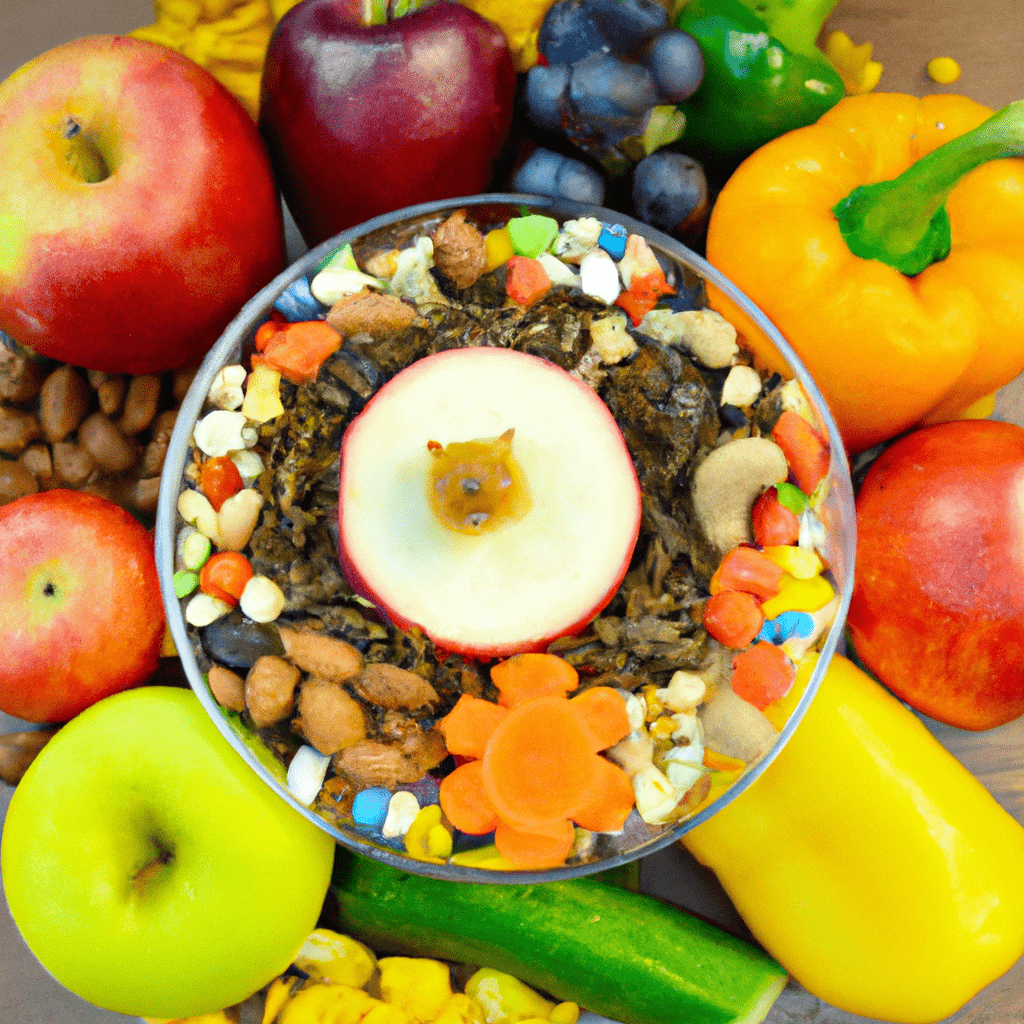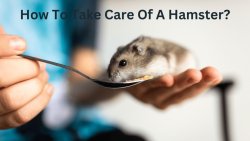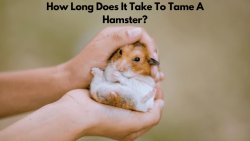In the vast world of hamster nutrition, where tiny tummies crave tasty treats, it becomes imperative to navigate the labyrinth of dietary choices with utmost care. Just as a sailor skillfully steers through treacherous waters, hamster owners must possess a keen understanding of their pet’s nutritional needs to ensure optimal health and happiness.
This article delves into the realm of hamster nutrition, providing valuable insights on choosing the right pellets for a balanced diet and exploring fresh fruits and vegetables as healthy snacks. Additionally, it delves into the importance of introducing protein-rich treats for optimal well-being while cautioning against harmful foods and ingredients that can pose risks to these small creatures.
Moreover, we discuss the significance of providing enrichment through safe chew toys and treats while emphasizing the importance of monitoring portion sizes to avoid overfeeding. To further enhance your knowledge in this domain, consulting with a veterinarian is recommended for tailored dietary advice.
By following these guidelines and creating a balanced and varied diet, you can ensure your furry companion enjoys a life filled with delectable delights while maintaining good health. So embark on this journey with us as we unravel the mysteries behind ‘Tasty Treats for Tiny Tummies: Navigating the World of Hamster Nutrition’.
Key Takeaways
- Hamsters have unique digestive systems adapted for high-fiber foods like seeds, grains, fruits, and vegetables.
- Varied diet is important for hamsters to receive all necessary vitamins and minerals.
- Choosing the right pellets for a balanced diet involves considering nutritional content and ingredients.
- Protein-rich snacks are essential for a hamster’s optimal health and balanced nutritional intake.
Understanding the Nutritional Needs of Hamsters
Understanding the nutritional needs of hamsters involves examining the specific dietary requirements and essential nutrients necessary to support their overall health and well-being. Hamsters have a unique digestive system that is adapted for processing a specific diet. Their short, simple intestines are designed to efficiently extract nutrients from high-fiber foods, such as seeds, grains, fruits, and vegetables. It is important to provide a varied diet to ensure they receive all the necessary vitamins and minerals.
Hydration is also crucial for hamsters’ digestion and overall health. They obtain most of their water from food sources, so it is essential to include fresh fruits and vegetables in their diet. Additionally, providing them with a water bottle attached to their cage will ensure they have access to clean drinking water at all times.
When choosing the right pellets for a balanced diet, it’s important to consider the nutritional content as well as the ingredients used. Look for pellets that are specifically formulated for hamsters and contain a good balance of protein, fiber, fat, vitamins, and minerals. Transitioning into this section about pellet selection emphasizes the importance of understanding hamster nutrition in order to make informed choices about their diet.
Choosing the Right Pellets for a Balanced Diet
The selection of appropriate pellets for hamsters is crucial in ensuring a well-balanced diet, promoting their overall health and vitality. Hamsters have specific nutritional needs that must be met to prevent deficiencies and promote optimal growth. Seed mixes are often a popular choice among hamster owners due to their palatability and variety. These mixes typically contain a combination of seeds, grains, and dried fruits or vegetables, providing essential nutrients such as protein, fiber, vitamins, and minerals. However, it is important to exercise portion control when feeding seed mixes as they can be high in fat content. Overconsumption of these fatty foods can lead to obesity and associated health problems in hamsters.
To ensure a balanced diet, it is recommended to feed pellets specifically formulated for hamsters. These pellets are designed to provide all the necessary nutrients in appropriate proportions without the risk of selective feeding commonly seen with seed mixes. Pellets should make up the majority of a hamster’s daily food intake while seed mixes can be offered as occasional treats or used for enrichment purposes.
In the subsequent section about exploring fresh fruits and vegetables as healthy snacks for hamsters , it is important to remember that not all fruits and vegetables are safe for hamsters to eat. It is crucial to research and ensure that the fruits and vegetables chosen are safe and suitable for hamsters before offering them as snacks.
Exploring Fresh Fruits and Vegetables as Healthy Snacks
Exploring the nutritional benefits of incorporating fresh fruits and vegetables into a hamster’s diet can enhance their overall well-being. Not only do these colorful treats provide essential vitamins and minerals, but they also add variety to their daily meals. When it comes to picky eaters, offering creative snack ideas can help entice even the fussiest hamsters. For instance, freezing small pieces of cucumber or watermelon can make for a refreshing treat during hot summer days. Additionally, stuffing small amounts of baby spinach or kale into a hollowed-out bell pepper can create an interactive and nutritious toy for your hamster.
While store-bought treats may be convenient, homemade options offer numerous advantages. Firstly, you have complete control over the ingredients used, ensuring that no harmful additives or preservatives are present in your furry friend’s snacks. Secondly, making treats at home allows you to cater to your hamster’s specific dietary needs and preferences. By experimenting with different recipes and flavors, you can find the perfect combination that keeps your pet happy and healthy.
Transitioning into introducing protein-rich treats for optimal health is crucial for maintaining a balanced diet for your hamster without compromising on taste or nutrition.
Introducing Protein-Rich Treats for Optimal Health
Introducing protein-rich snacks into a hamster’s diet is essential for promoting optimal health and ensuring a well-balanced nutritional intake. Hamsters are omnivorous animals, meaning they require both plant-based and animal-based proteins to meet their dietary needs. When selecting protein sources for hamsters, it is important to choose options that are safe and appropriate for their tiny tummies.
Some common protein sources for hamsters include mealworms, crickets, cooked chicken or turkey, tofu, and boiled eggs. These treats provide essential amino acids that are necessary for the growth and maintenance of tissues in the body. Protein-rich snacks also contribute to healthy skin and fur, as well as supporting the immune system.
Incorporating these protein-rich treats into a hamster’s diet can help prevent deficiencies and promote overall well-being. However, it is crucial to offer them in moderation since excessive amounts can lead to weight gain or digestive issues.
Transitioning into the subsequent section about avoiding harmful foods and ingredients, it is important to be mindful of what should not be included in a hamster’s diet. By understanding which foods can be harmful or toxic to hamsters, owners can ensure their furry friends stay healthy and thriving.
Avoiding Harmful Foods and Ingredients
Avoiding harmful foods and ingredients is crucial in ensuring the health and well-being of hamsters, as certain food items can have adverse effects on their delicate digestive systems. To help you navigate the world of hamster nutrition and keep your tiny friend healthy, here are three important considerations:
-
Identifying potential allergens: Hamsters can be sensitive to certain foods, so it’s essential to be aware of common allergens such as peanuts, dairy products, and citrus fruits. These items can cause allergic reactions in hamsters, leading to symptoms like itching, swelling, or difficulty breathing. Therefore, it is best to avoid these foods altogether.
-
Recognizing signs of nutritional deficiencies: A balanced diet is vital for a hamster’s overall health. Signs of nutritional deficiencies include weight loss, dull fur coat, lethargy, or dental problems. If you notice any of these signs in your furry friend, consult a veterinarian who specializes in small animals for further guidance.
-
Avoiding toxic substances: Some human foods like chocolate or caffeine-containing products can be toxic to hamsters. Additionally, high-sugar treats should be limited as they can lead to obesity and dental issues.
By being mindful of potential allergens and nutritional deficiencies while avoiding harmful substances or ingredients in your hamster’s diet, you can ensure their optimal health and well-being. Now let’s explore how incorporating hay and fiber into a hamster’s diet contributes to their overall digestive health without compromising taste or variety.
Incorporating Hay and Fiber into a Hamster’s Diet
Incorporating hay and fiber into a hamster’s diet is essential for digestive health and dental care. Hamsters have unique dietary requirements, and a diet rich in hay and fiber helps to replicate their natural feeding habits in the wild. Hay provides hamsters with the necessary roughage needed for proper digestion by promoting bowel movements and preventing constipation. Additionally, the chewing action required to consume hay aids in wearing down their continuously growing teeth, ensuring optimal dental health.
Hay can be provided in various forms, such as Timothy hay or alfalfa hay, both of which are readily available at pet stores. It is important to introduce hay gradually into a hamster’s diet, as sudden changes can upset their sensitive digestive systems. A small handful of fresh hay can be given daily, along with additional sources of fiber like pellets or vegetables.
By incorporating hay and fiber into a hamster’s diet, owners can help prevent common health issues such as diarrhea or dental problems. Moving forward to providing enrichment with safe chew toys and treats allows for further stimulation and overall well-being of these small animals without compromising their digestive health.
Providing Enrichment with Safe Chew Toys and Treats
Providing appropriate chew toys and treats for hamsters is crucial for promoting mental stimulation and overall well-being. Safe chew toys not only satisfy a hamster’s natural instinct to gnaw, but they also help keep their teeth healthy and prevent overgrowth. When selecting chew toys, it is important to choose those made specifically for hamsters, as other materials may be harmful if ingested. Some popular options include wooden blocks, untreated pine cones, and loofahs. These toys provide an engaging texture that encourages exploration and play.
In addition to safe chew toys, offering a variety of treats can also contribute to a hamster’s mental stimulation. Treats should be given sparingly and in small portions to avoid overfeeding. Options such as dried fruits or vegetables can be offered occasionally as a special reward. Commercially available treat sticks or chews designed for hamsters are another great option.
By providing safe chew toys and occasional treats, hamsters are able to engage in natural behaviors while receiving mental stimulation. This helps prevent boredom and promotes overall well-being in these beloved pets.
Transition: Monitoring portion sizes and avoiding overfeeding is another important aspect of ensuring optimal nutrition for your pet hamster without compromising their health.
Monitoring Portion Sizes and Avoiding Overfeeding
Monitoring portion sizes and ensuring a balanced diet is crucial for maintaining the health and well-being of pet hamsters, as studies have shown that overfeeding can lead to obesity, which increases the risk of various health issues. Portion control plays a significant role in preventing obesity in hamsters. It is important to provide appropriate serving sizes to avoid excessive calorie intake, as hamsters have small stomachs and can easily become overweight if given too much food. A general guideline for portion control is to offer about one or two tablespoons of specially formulated hamster pellets per day, along with a variety of fresh vegetables and occasional treats.
Preventing obesity in hamsters goes beyond monitoring portion sizes; it also involves providing a well-balanced diet. Hamsters require a mix of high-quality protein, carbohydrates, fiber, vitamins, and minerals for optimal nutrition. Researching and understanding their dietary needs is essential to ensure they receive proper nourishment without excess calories.
Monitoring portion sizes and providing a balanced diet are essential for maintaining the health of pet hamsters and preventing obesity-related health issues. By practicing portion control and offering a nutritious diet consisting of carefully measured amounts of pellets, vegetables, and treats, owners can help their furry friends maintain a healthy weight. Consulting with a veterinarian for dietary advice further ensures that the nutritional needs specific to individual hamsters are met appropriately without compromising their overall well-being.
Consulting with a Veterinarian for Dietary Advice
Consulting with a veterinarian can be an invaluable resource for obtaining expert guidance on the dietary needs of pet hamsters. Finding reputable veterinarians who specialize in small animal care is essential to ensure that the advice received is accurate and reliable. These professionals have extensive knowledge of hamster nutrition and can provide tailored recommendations based on the specific needs of each individual hamster.
One important aspect that veterinarians can help with is understanding nutritional deficiencies in hamsters. Some common deficiencies include lack of vitamin C, calcium, or certain minerals. Veterinarians can perform thorough examinations and blood tests to identify any deficiencies and recommend appropriate supplements or changes in diet to address these issues.
To emphasize the importance of consulting with a veterinarian, consider the following table:
| Reasons to Consult with a Veterinarian for Dietary Advice |
|---|
| Expert knowledge on hamster nutrition |
| Ability to diagnose nutritional deficiencies |
| Tailored recommendations based on individual needs |
| Access to accurate information |
By seeking advice from a veterinarian, pet owners can ensure they are providing their hamsters with a balanced and varied diet for optimal health. Transitioning into the subsequent section about creating such a diet, it is crucial to consider various food options and portion sizes to meet all nutritional requirements.
Creating a Balanced and Varied Diet for a Happy and Healthy Hamster
Creating a diet that is balanced and varied is essential for ensuring the overall well-being and health of pet hamsters, as studies have shown that inadequate nutrition can lead to various health issues. Understanding portion control is crucial in maintaining a healthy weight for hamsters. Overfeeding can lead to obesity, which increases the risk of cardiovascular disease and diabetes. On the other hand, underfeeding can result in malnutrition and stunted growth.
Hamsters require a combination of fresh fruits, vegetables, grains, and proteins in their diet to meet their nutritional needs. Providing a variety of foods ensures that they receive all the necessary vitamins and minerals. Fruits like apples, pears, and berries can be offered as occasional treats due to their high sugar content. Vegetables such as broccoli, carrots, and leafy greens should be included daily for fiber intake.
Hydration is also important for hamsters’ overall health. Water should always be readily available through a water bottle or dish. Freshwater should be provided regularly to prevent dehydration.
It’s important to note that each hamster may have specific dietary requirements based on age, breed, and health condition. Consulting with a veterinarian who specializes in small animal care can help create an individualized diet plan for your pet hamster. By following these guidelines on portion control and hydration while offering a diverse range of foods, you can ensure that your tiny friend has a balanced and varied diet for optimal well-being and happiness.
Frequently Asked Questions
Can hamsters eat chocolate?
Chocolate is not recommended for hamsters due to its high sugar and caffeine content. Instead, provide safe alternatives such as small pieces of fruits or vegetables. Feeding chocolate to hamsters can lead to digestive issues and potentially fatal conditions.
How often should I feed my hamster fresh fruits and vegetables?
A balanced diet for hamsters includes a feeding schedule that incorporates fresh fruits and vegetables. These should be provided in moderation to ensure a healthy intake of nutrients without causing digestive issues.
Can hamsters eat nuts?
Hamsters and nuts: a match made in heaven or a recipe for disaster? Nutritional benefits of nuts for hamsters: what you need to know. Nuts can be a valuable addition to a hamster’s diet, providing essential fats, proteins, and vitamins. However, caution must be exercised as some nuts can pose choking hazards or contain harmful substances. Consult with a veterinarian before introducing nuts into your hamster’s diet.
What are some signs of overfeeding in hamsters?
Signs of overfeeding in hamsters include obesity, lethargy, and diarrhea. To maintain a balanced diet for hamsters, provide appropriate portion sizes and limit high-calorie foods. Consult with a veterinarian for specific dietary recommendations.
Should I give my hamster supplements to meet their nutritional needs?
Supplement use may seem beneficial but a balanced diet provides essential nutrients. While supplements may address specific deficiencies, excessive intake can lead to toxicity and imbalance. It is best to consult a veterinarian for individualized dietary recommendations.
Conclusion
In conclusion, providing a balanced and varied diet is crucial for the overall health and well-being of hamsters. Understanding their nutritional needs and choosing the right pellets as a base is essential. Including fresh fruits, vegetables, and protein-rich treats can add variety and promote optimal health. It is important to avoid harmful foods and ingredients that could be detrimental to their well-being. Monitoring portion sizes and avoiding overfeeding is also necessary to prevent obesity. Consulting with a veterinarian for dietary advice ensures the best nutrition plan for your furry friend. One interesting statistic to note is that hamsters have been found to consume up to 20% of their body weight in food daily, underscoring the importance of providing them with enough nourishment while maintaining a balanced diet.


